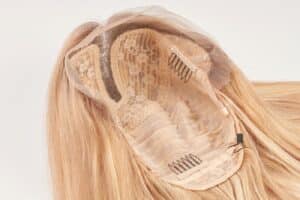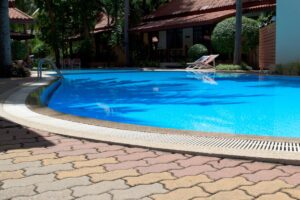Playing sports is a big part of life for many Aucklanders, from school children to adults in local clubs. If you wear braces, staying active means taking extra care to protect your teeth and mouth.
Braces add complexity to your dental health because they can cause or worsen injuries during physical activity. Understanding the risks and how to manage them will help you keep your braces safe and enjoy sports around Auckland with confidence.
Key Takeaways
- Braces increase the risk of mouth injuries during sports, including cuts, broken wires, and tooth trauma.
- Wearing a custom-fitted mouthguard is the most effective way to protect your braces and soft tissues while playing.
- Proper preparation, such as warming up and staying hydrated, reduces injury risks on the field.
- Maintaining excellent oral hygiene and regular orthodontic check-ups is essential during sports seasons.
- Knowing how to respond quickly to injuries and seeking professional care can prevent treatment delays and further damage.
Understanding the Risks: Why Braces Need Extra Care in Sports
Orthodontic treatment with braces involves brackets, wires, and bands fixed to your teeth. This adds risk during contact or high-impact sports, common across Auckland’s many school and community teams. A hit to the mouth can cause braces to cut the soft tissues inside your lips and cheeks or break wires and brackets. This can lead to pain and delay your treatment.
Sports-related injuries for those wearing braces include cuts inside the mouth, damaged braces components, and in severe cases, cracked or loosened teeth. Being aware of these risks is the first step to staying safe during physical activities in Auckland’s sporting environments, and knowing what to expect during your first braces consultation can also help you prepare for a safe and effective treatment journey.
Common Injuries for Athletes with Braces
Soft tissue injuries occur when brackets and wires rub or puncture the inside of your mouth during impacts. These cuts are painful and can easily become infected if untreated.
Brackets and wires may bend or break in collisions or falls common in contact sports played across Auckland. This damage slows orthodontic progress and may require emergency visits to your orthodontist.
In some cases, a strong impact can loosen or fracture teeth. While braces correct alignment, they do not protect against dental trauma.
Vital Protective Gear for Athletes Wearing Braces
A well-fitted mouthguard is the best protection for athletes with braces. Mouthguards cushion impacts and prevent braces from cutting into your lips and cheeks.
In Auckland, sports shops and orthodontists can provide stock or custom-fitted mouthguards. Custom ones fit braces better and offer superior comfort and protection.
Choosing the Right Mouthguard
Orthodontists in Auckland recommend custom mouthguards made from soft materials that protect wires and brackets while fitting snugly.
Comfort is crucial. An uncomfortable mouthguard will be worn less, reducing protection. Make sure it allows easy breathing and clear communication during games.
Maintain your mouthguard by rinsing it after use, cleaning regularly with a toothbrush, and storing it in a ventilated container. Replace it when worn or damaged.
Preparing Your Mouth and Body Before Playing
Taking care of your braces during sports requires more than just gear. Proper physical preparation lowers injury risk. Warming up and stretching before games or practices prepares your muscles and joints. This reduces falls and collisions, which can damage braces.
Know the risks associated with your sport. Auckland offers many different codes, from rugby to netball, each with its hazards. Play smart by avoiding risky moves that could injure your mouth or braces.
Stay hydrated during your game or practice to keep your mouth moist and reduce irritation from braces.
Maintaining Oral Hygiene During Sports Seasons
Braces trap food easily. When combined with mouthguard use, this can increase the risk of decay and gum infections if not managed well. Brush teeth thoroughly twice daily and floss regularly. Use interdental brushes or water flossers to clean around brackets and wires.
Always clean your mouthguard after every use and never share it. Regular cleaning prevents bacterial build-up, reducing infection risks. Book regular check-ups with your Auckland orthodontist and dentist during sports seasons to keep your oral health and braces in good shape.
What to Do If You Get Injured While Wearing Braces
Injuries happen even with precautions. Knowing how to respond quickly reduces damage. If you get a mouth injury with braces, rinse gently with warm water. Use a cold compress to reduce swelling. If wires or brackets break or poke gums, cover sharp edges with orthodontic wax until you can see your orthodontist.
Seek emergency dental or orthodontic care immediately for severe pain, loose teeth, or heavy bleeding. Tell your orthodontist about the injury so they can adjust your treatment plan. Keep an emergency kit handy during games or practices with orthodontic wax, a mirror, pain relief, and your orthodontist’s contact details.
Supporting Young Athletes with Braces
Parents and coaches play an important role in helping young Auckland athletes manage braces safely. Encourage mouthguard use every time they play. Explain why safety gear is essential.
Teach young players how braces work, the risks in sports, and how to avoid injury. Reinforce good oral hygiene and care for orthodontic appliances. Schedule regular orthodontic appointments to monitor braces throughout the sports season.
Mental and Emotional Support for Athletes with Braces
Wearing braces can be physically and emotionally challenging. Some young athletes worry about looking different or getting hurt.
Parents and coaches should offer encouragement. Remind them braces are temporary and will improve their smile long-term.
Help keep athletes motivated by setting achievable goals and recognising progress. Proper care and precautions mean braces should not limit sports participation.
Wrapping Up: Balancing Active Life and Orthodontic Care
Braces should not keep you from playing sports in the Auckland region. By understanding the risks and following safety advice, you can protect your smile and stay active.
Mouthguards, preparation, hygiene, and prompt action after injuries are key to safe sports with braces. For tailored advice, consult your Auckland orthodontist who can recommend the best gear and care plan.
Protect your smile and enjoy your favourite Auckland sports safely.
Have you read these articles?
 Osteopathy Or Physiotherapy – What You Need To Know
Osteopathy Or Physiotherapy – What You Need To Know
 Braces Or Clear Aligners: Which Is The Best Overbite Treatment?
Braces Or Clear Aligners: Which Is The Best Overbite Treatment?
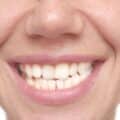 Affordable Options For Straightening Crooked Teeth In Auckland
Affordable Options For Straightening Crooked Teeth In Auckland
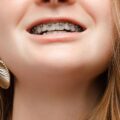 Types of Adult Braces in New Zealand: A Comprehensive Guide
Types of Adult Braces in New Zealand: A Comprehensive Guide
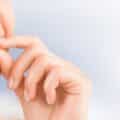 Invisalign vs Braces – Which Is Better for Auckland Patients?
Invisalign vs Braces – Which Is Better for Auckland Patients?




